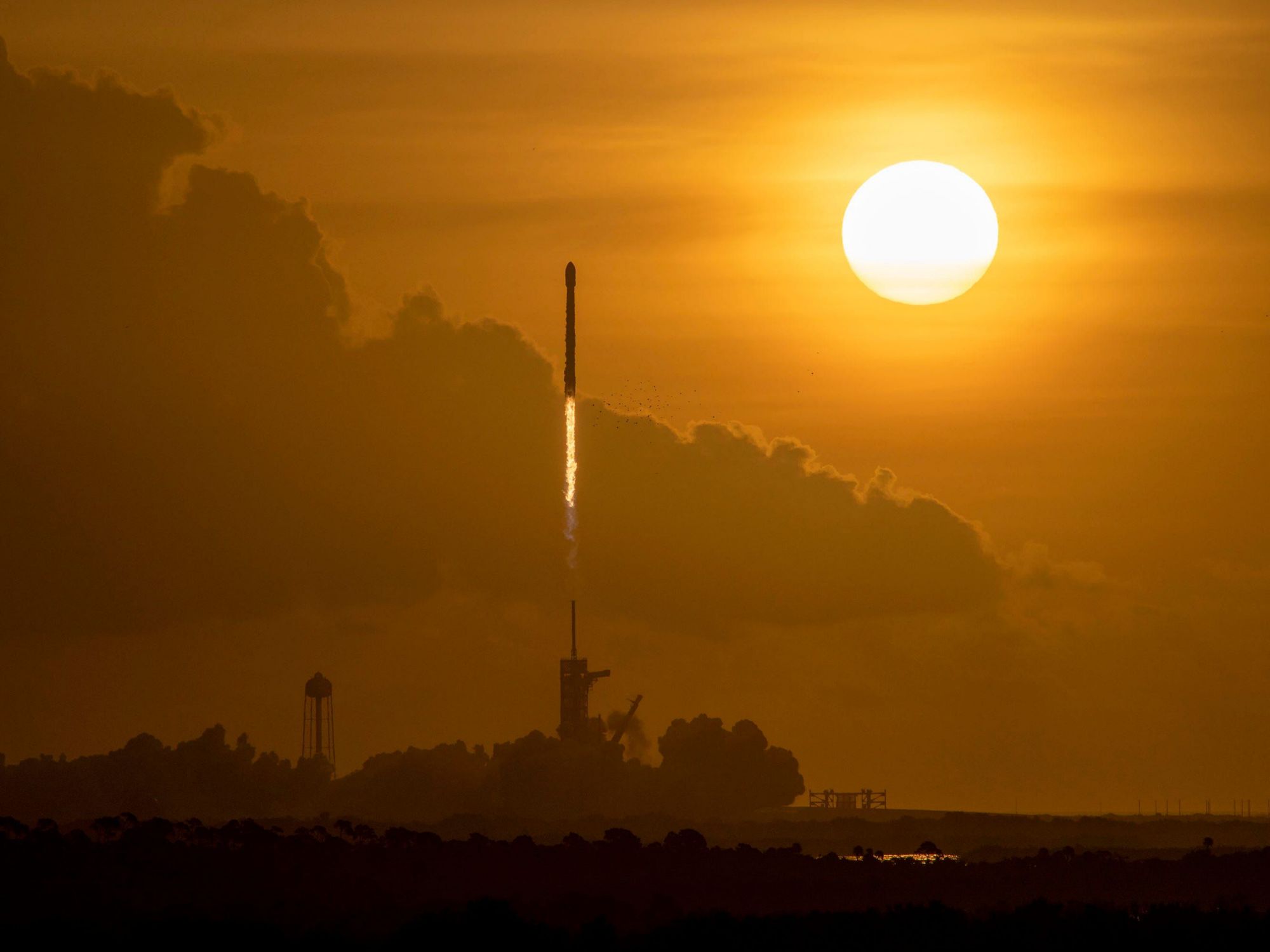
www.yahoo.com
SpaceX has darkened its Starlink internet satellites with visors to avoid disrupting the night sky - but they can still ruin astronomers' data
There was a chance the Starlink satellite fleet would litter the night sky with hundreds of moving lights. But it seems we've avoided that fate.
Science & Tech
SpaceX added sun visors to its Starlink internet satellites to prevent moving lights from marring views of the night sky.
The result: the visors may have darkened the satellites to 31% of their former brightness, according to a new study.
That makes them mostly invisible to the naked eye, but it probably doesn't change the impact Starlink will have on astronomy if SpaceX launches 42,000 satellites as proposed.
SpaceX is on course to rocket tens of thousands of satellites into Earth's orbit, part of Elon Musk's plan to blanket the planet in high-speed internet. For the first time, data shows that the company may be able to accomplish this feat without marring everyone's view of the night sky.
When the first bright trails of the company's Starlink satellites paraded across the night in May 2019, scientists feared that it was a preview of a future in which points of moving light swarm the skies and overshadow the stars.
But Starlink may now be largely invisible to the naked eye, according to a new analysis. The paper suggests that new sun visors added to the most recent 415 satellites SpaceX has launched may have significantly darkened them. The visors deploy after launch and block sunlight from reflecting off the satellites' shiniest surfaces.
These "VisorSats," as SpaceX calls the satellites with this built-in feature, are on average 31% as bright as the 540 Starlink satellites that came before them, according to the paper. The research, which was based on 430 observations of satellites flying overhead, was published Saturday on the open repository ArXiv.
However, this visor improvement still leaves the satellites about 2.5 times brighter than SpaceX's goal, and they're still far too bright for telescopes to be unaffected. The visors probably won't prevent Starlink from permanently changing ground-based astronomy.
























































